In two weeks it will be 70 years. Two, may be three generations ago. How many people still remember it? How many of them, who saw it with their own eyes, are still alive? And there were only a few not afflicted by these events.
The Biblical scene of David fighting Goliath always fascinated people. Battling against insurmountable odds is easy to romanticize and difficult to forget. Our history has plenty of moments like that, to mention only cavalry charges against the enemy tanks or taking the abbey on Monte Cassino in the recent times.
The Warsaw uprising reminded me of a Roman match up of two gladiators: one with heavy armor, helmet, chest plate and a sword fighting another one, armed with a fish net and a short knife. A lightly armed fighter was usually the one leaving the arena alive.
We didn’t do as well. It took 63 days for the well-equipped and battle – trained German army to force amateur Polish fighters to surrender. How did it come to that?
After defeat in the Battle of Stalingrad at the beginning of 1943 Germans were retreating. One year later, front lines were drawn on the Vistula river, which goes through Warsaw. Germans were in the west, Russians in the east part of our capital. The idea of armed resistance against Germans was worked on for quite a while. Hoping to help liberate the left banked part of Warsaw, still in Germans hands, Poles attacked at 5 PM on August 1, 1944. They were counting on help from Russians who were stationing just across the river. They thought, that since we are fighting a common enemy…
The main weapon of Polish insurgents was the knowledge of the City. They started with a few pistols and rifles. The other weapons were taken from Germans. Air lift from Britain was sporadic, and quite a few pieces of equipment ended up in German hands. On the Polish side, everybody was fighting. Women and children were carrying the weapons, cooked meals and attending wounded and dead. Boys were distributing the mail.
Our weapons.
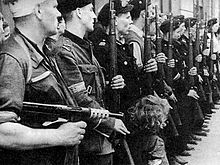
Their weapons.
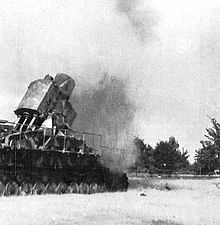
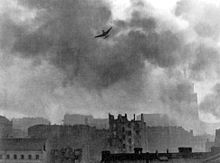
After Polish initial successes, without substantial help from the West and no help from the East, refreshed German troops broke our backs. It took more than two months. And all that time, “tired” Russians were resting on the right banks of the river.
Street fighting in Warsaw was compared by Germans only to the Battle of Stalingrad. Polish fighters resistance was an embarrassment to the Germans, and high command was finally taken over by Himmler himself.
After capitulation, the Polish commander was allowed to retain his pistol as a gesture of respect.
And then came the order:
“The city must completely disappear from the surface of the earth and serve only as a transport station for the Wehrmacht. No stone can remain standing. Every building must be razed to its foundation.”
Himmler
Drunken hordes of RONA criminals, part Germans, part Russian, were sent to pacify the rest of the remaining Polish population. District after district was taken, women raped, babies heads smashed on remaining walls, the rest of survivors shot. The biggest problem was what to do with the piles of bodies. German ingenuity was used to develop new methods of disposal, rivaling only those from Auschwitz. In the end, 200,000 people, mostly civilians, were dead. My family was lucky to be given 30 minutes to gather their belongings and be able to walk out.
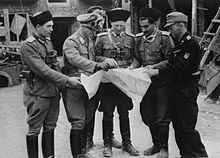
Then came troops with flamethrowers and, with inborn German precision, house after house was ignited. With or without remaining inhabitants.
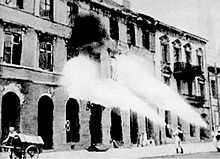
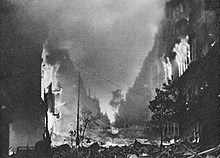
This can be seen in Polanski’s movie The Pianist.
The recent book by Alexandra Richie, Warsaw 1944, was criticized for too graphic depiction of German crimes. It wasn’t exaggerated, that’s the way it was. I spoke to people who lived through that hell.
The victims.
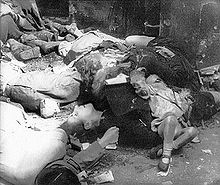
That was the look of Warsaw after the Germans left.

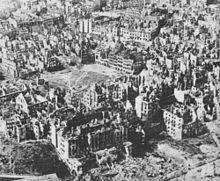
And that is the way Warsaw looks now.



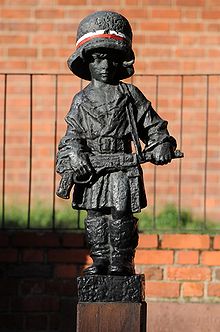
There is an essential philosophical and ethical question: how do we approach the descendants of people who did it to us? Of course we have to, and we will remember. But do we forgive? How do we treat German or Russian people, whose fathers or even grandfathers undoubtedly were fighting on our land in a war not of our causing? Are there any limits to hatred and revenge? My immediate family survived, but my two uncles in their 20s were sent to Auschwitz for smuggling food to the Jewish ghetto in Warsaw. They never came back.
Every person needs to solve that problem for himself.
There is another fact not very well-known to the public. Poland was one of the very few, if not the only, countries where throughout the entire time of German occupation there was no political nor economic cooperation with the invaders. There was no Vichy government, no Quisling politician. Poles did not serve in the German army. We never signed a document of surrender to the Germans. No other country can say that. Polish resistance was the strongest among the occupied nations, and the Warsaw Uprising was the single most prominent act of war against Germans done by resistance forces not being a part of the regular army.
Once I was told by a highly educated and accomplished individual of Polish stupidity in actions in Warsaw and at Monte Cassino.
I answered these were the ones of many moments in our history we are very proud and cherish the memories of.
And what about our allies? We got screwed again.
“I want to protest against the mean and cowardly attitude adopted by the British press towards the recent rising in Warsaw… One was left with the general impression, that the Poles deserved to have their bottoms smacked for doing what all the Allied wirelesses had been urging them to do for years past, … First, a message to English left-wing journalists and intellectuals generally: ‘Do remember, that dishonesty and cowardice always have to be paid for. Don’t imagine, that for years on you can make yourself the boot-licking propagandist of the Soviet regime, or any other regime, and then suddenly return to mental decency. Once a whore, always a whore.”
George Orwell, September 1, 1944.
History has a tendency to repeat itself.

